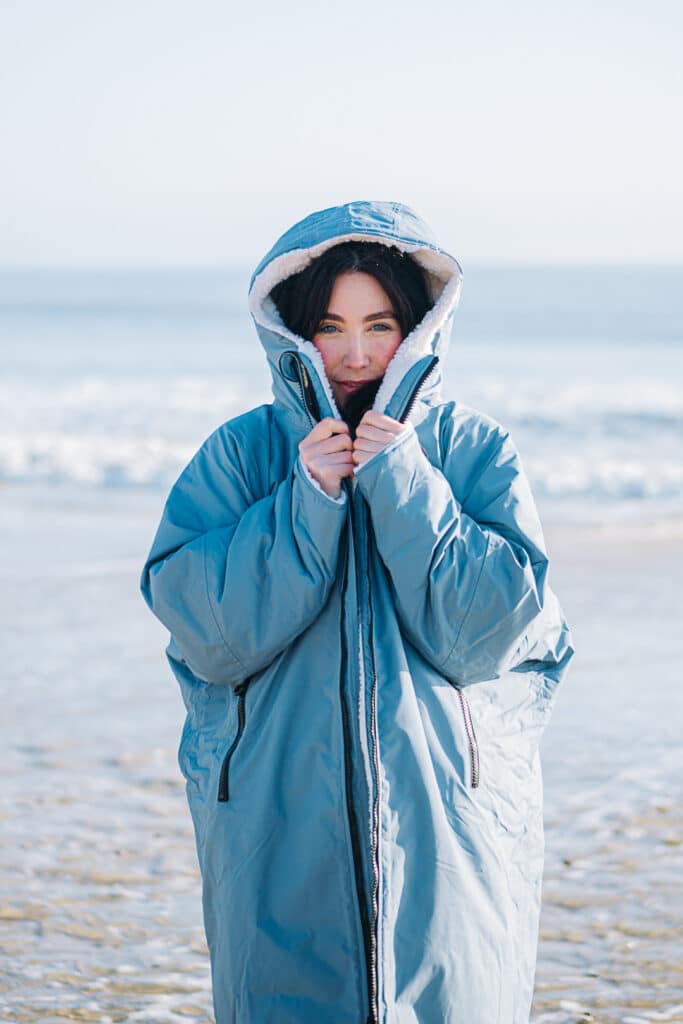Top tips for working seasons as an outdoor instructor!
Tips make the world go round that little bit smoother. We can all learn from our own experiences; both the good decisions and terrible mistakes we make along the way. But if someone else has already been there, done that and got the t-shirt, why not use their experience and knowledge to benefit you and your future plans?
We have a lot of tips from working many seasons as outdoor instructors and would love to share them with anyone hoping to work a season in the outdoor industry. This post will cover tips on outdoor instructor training, looking for a seasonal job, working as an outdoor instructor and enjoying your free time.
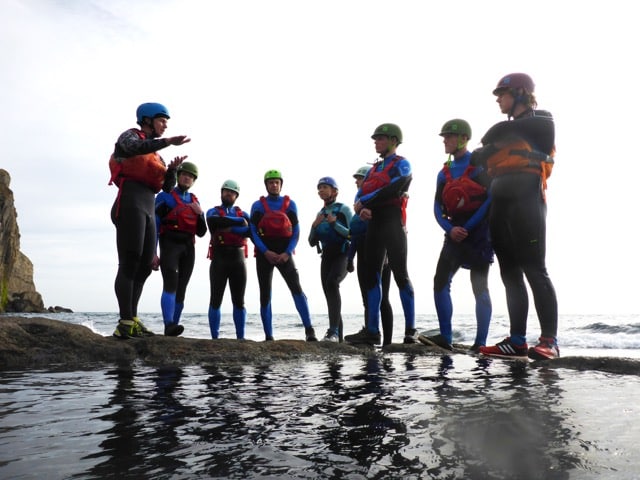
Training
Tip 1 – Get qualified
Firstly, to work a season as an outdoor instructor we need qualifications. It is possible do an intensive ‘zero to hero’ instructor training course whereby you can gain many different outdoor qualifications in a short space of time whilst training with a professional provider like us at Land & Wave. You need a big chunk of available time to complete these style of courses – our instructor training is a 15 week long programme but you will come out with a staggering 16 qualifications!
If you are already in employment and cannot afford or don’t have the capacity to spend nearly four straight weeks training and getting qualified, a more gradual approach would be to practice the sports/activities you want to be qualified in and get your skills up to instructor level in your own time. You can then take direct assessments with National Governing Body approved course providers to gain the qualifications.
Another route you can take is to get experience by working a season as an apprentice or assistant instructor at an outdoor centre. This will allow you to do plenty of on-the-job training and help qualified instructors deliver their sessions. You will not be able to run your own sessions but instead shadow your colleagues to learn practical and technical skills as well as get a well-rounded view of the industry.
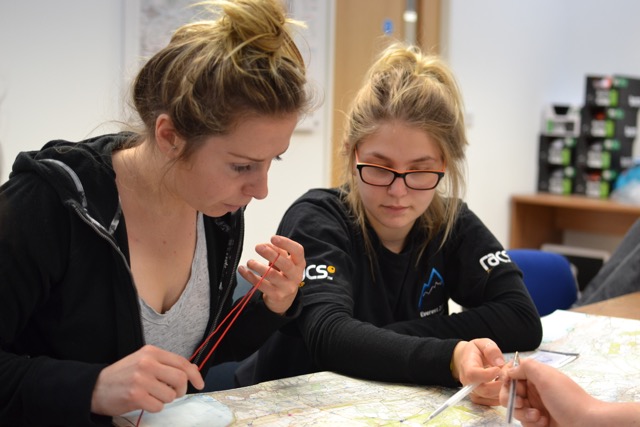
Tip 2 – Don’t rush your training
As lovely as it would be to gain your qualifications quickly, another one of our tips would be try to avoid rushing through the pre-requisites and scraping through the assessments by the skin of your teeth. It’s not enjoyable and you can really miss out on maximising your learning opportunities. We have seen many people rush through and cause themselves a hell of a lot of stress in the process.
If you take your time, gain plenty of pre-course experience and get as many shadowing hours in as you can to make sure you are ready for your course or assessment, you will have so much more fun. If you are not stressed you can focus more on learning outcomes and have a more confident ability and understanding rather than just barely scraping a pass grade.
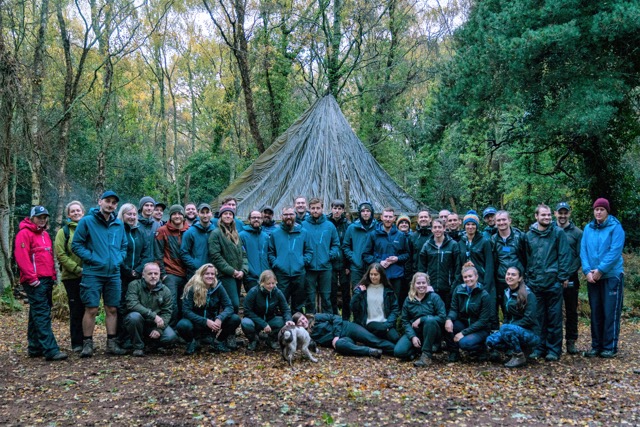
Tip 3 – Try to mix things up
Naturally, the outdoor instructor courses that you will hear about first or that you will be drawn to the most will be those running out of your local outdoor centre, or the outdoor centre you are currently working for. Our advice for becoming a better all round instructor would be to always be willing to stretch your comfort zone and research where else the course may be running.
It’s all well and good completing a course on your doorstep in familiar territory with familiar kit and familiar people, but why not travel somewhere you have never been before for the next course you do? By experiencing an unfamiliar environment and working with new people will open yourself up to learning different approaches to the same skills which will naturally broaden your knowledge.
Tip 4 – Be open to learning
Learning is not necessarily a tick in a box, completed it mate situation. There are often many ways of completing most tasks, so just because you have learnt one way doesn’t mean there are not other ways of doing things.
Try to avoid the mind-set of ‘well that’s now how I do it’ or ‘that’s not how I was shown at my last job’. Be open to exploring new methods, weighing up the pros, cons and reasons for the different approach. A good instructor will be open to all possible scenarios and this will assist them when teaching in different situations and environments.
Looking for a job during the Summer seasons
All seasons eventually come to an end and my least favourite part of seasonal work is constantly looking for a new job every time this happens. If you want to go down the route of working seasons as an outdoor instructor, you’ll find that once you get the bug you will want to start moving around and experiencing the outdoors in different parts of the country, or even in a completely different country altogether! Personally, we like to move around and try new places, so literally every 6 months we have to work out – ‘where next?’.
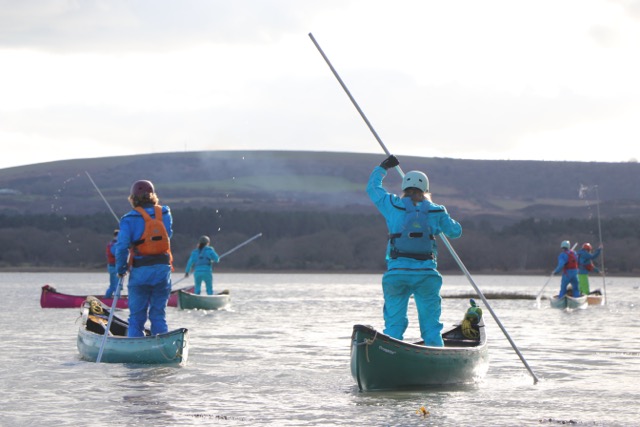
Tip 5 – Know what a company has to offer
Working a seasonal job often comes with some form of package and various job perks. Make sure that you are clear what a company is able to offer you as their employee, as this will vary massively depending on the Company. Accommodation, food, training, insurance, use of equipment, travel expenses, staff discounts/offers are just a few examples of what an employer may be able to offer.
Housing and feeding yourself sounds very much like ‘adulting’ to us. Luckily, many of the companies we have worked for were able to provide accommodation and food for the duration of our contracts which was ideal for the more remote locations and workplaces with high workloads. Although not having to look for accommodation is a plus, sometimes staff accommodation can be horrifically run down with many people crammed into a small space. So make sure you do some research before committing to a job! If you are close to a town and can find a nice place to stay the extra effort can be worth it.
Be prepared for your interview and make sure you ask lots of questions so that you are aware what is included and what you will have to arrange yourself. If they don’t provide accommodation, they may be able to advise on how you could find private accommodation, for example.
You can get an idea of some of the outdoor jobs on offer here: https://www.outdoor-learning.org/jobs/current-vacancies-new
Tip 6 – Understand what experience and qualifications you need or could get
With many avenues of outdoor instructing available, there a huge wealth of centres around to apply to. It’s good to check what qualifications are necessary to be employed there in the first place as different centres will provide different sports and activities to their customers. Another way to look at it is thinking what qualifications and experience you may be able to gain from working in a particular outdoor centre. Could you further your portfolio of qualifications which could in turn open up more opportunities in the future?
We recently worked in Finnish Lapland for a month which involved me running Northern Lights snowmobile tours and ice fishing trips. I wasn’t able to add any new qualifications to my CV and I’m probably no more appealing to future employers than I was before, but the experience and unbridled happiness I had whilst getting paid to speed around on a snowmobile admiring the Aurora Borealis in all its glory was immense.
On the job
So we go on courses, get qualified and secure ourselves a job as an outdoor instructor.. now it’s time to put it all into practice and inspire people with a safe and enjoyable lesson. We want to work seasons because we enjoy our job – it’s the best job in the World! And it is important to be the very best you can be…
Tip 7 – Be adaptable
The outdoors is a very changeable place and as outdoor instructors we are forever at the mercy of unforeseen changes. We have seen many sessions go sideways because of an instructors refusal to adapt to these unwanted surprises. Just because you have written up an incredible lesson plan doesn’t mean you should stick to it to blindly.
Unwanted variables come in all shapes and forms from unpredictable weather, last minute change in group size, late comers, unexpected mixed ability of a group and so on… These are just a handful of reasons why you should be ready to adjust your plans. In some cases the inability to accept that a change of plan needs to be made can lead to situations which will put peoples safety at risk.
Tip 8 – Be patient
We’ve heard it a million times at the end of a work day: ‘There’s this one student that just wasn’t getting it! Argh! It was so frustrating’. It’s something that really gets to us. As an instructor, it is important to be understanding of your student and how they learn. Just because your usual explanation has worked on hundreds of students before, doesn’t mean everyone will understand it.
Be willing to communicate differently, rephrase things and demonstrate in various different ways. Don’t get upset or angry, just think how you can mix things up to help them understand. It could be more words, less words or no words at all! Make a change to what you are doing, rather than repeating the same method. See it as a challenge which once achieved, will contribute towards your teaching style and techniques.
Tip 9 – Get the right equipment
Outdoor equipment is expensive! Luckily for us outdoor instructors, most centres have all the essential equipment needed to run sessions readily at hand for us to use. Some pieces of equipment, however, are more personal and it is good to know what bits of kit you should be investing in to benefit your work. You may want to purchase your own wetsuit, buoyancy aid, helmet and footwear, for example.
Before hitting the shops, it’s always a good idea to check with your employer if they have any trade or pro deals with suppliers. It’s so much more cost effective to stock up on trade priced equipment rather than paying full price in the shops later which will leave a pretty big hole in your bank! Another good tip – as an instructor we can also benefit from being members of various national governing body organisations. Being a member of such organisation will give you discounts from certain shops and brands. For instance, I was able to get 20% off of new hiking boots recently because I am a British Canoeing Coach and a member of the British Canoeing!
Enjoying your free time
Working seasons as an outdoor instructor is not all work and courses. There is plenty of free time too which, arguably, is the most important time for you and your wellbeing. If you spend your free time doing things that make you happy, this will enable you to enjoy your season to the absolute fullest.
Tip 10 – Don’t drink too much
During busy periods where time off can be a bit fewer and further between; would you rather finish up that all important day off with some vague, fuzzy memories from the night before, having woken up at midday and spent the rest of the day nursing a sore head and working out how you spent so much of that hard earned cash? Or would you prefer to have a pretty clear picture of what you did last night, get up at a reasonable time and have a great day feeling pretty spiffing; exploring, adventuring and making some good solid memories to look back on?
Tip 11 – Plan your days off
Any good outdoor instructor will know the importance of planning ahead to ensure a lesson is executed as fun and safe as possible. We take into account the weather forecast, tides, ability and size of the group, equipment, contingency plans in case of last minute changes, emergency action plans, the list goes on and on…
The last thing you want to do in your very well earned free time is even more planning, you say? Think again! Not having a plan often sees people pacing around on the morning of their day off with no idea what they’re going to do and by the time they have hatched a plan, ‘poof’ – the best part of the day is behind them. We’ve seen it all too often on pretty much every season we’ve worked. Put some thought into your days off and you will achieve so much more.
Tip 12 – Squeeze in all the fun stuff
During a couple of Summers in the Spanish Med, I worked super long hours on the beach and not finishing until well past nightfall most days. To maximise enjoyment time I would squeeze as much windsurfing, coasteering, paddle boarding, snorkelling (just to name a few activities) into my hours lunch break as possible.
This was made possible thanks to planning ahead, taking all the kit I would need with me to work as well as preparing a decent packed lunch. So while others were wondering to the shops or waiting for their burger to cook at the local cafe, I was getting my play time in. I also bought a dive torch so I could snorkel after work when it was dark! Even after a long hard day, spending a little while bobbing around looking for octopus and squid at night would make me feel content and that I had done something fun for myself that day. https://landandwave.co.uk/outdoorinstructortraining/





